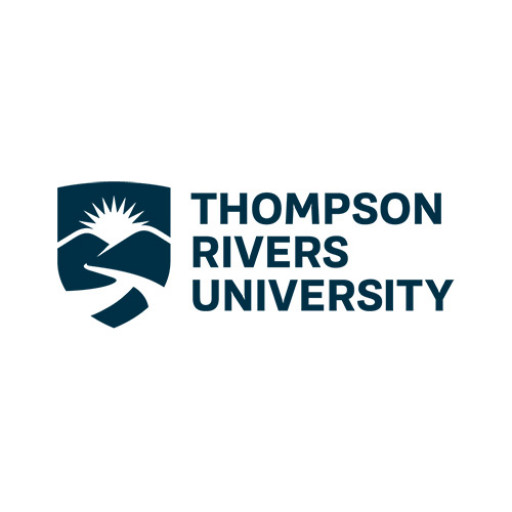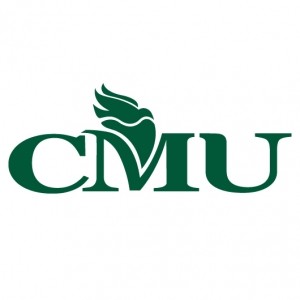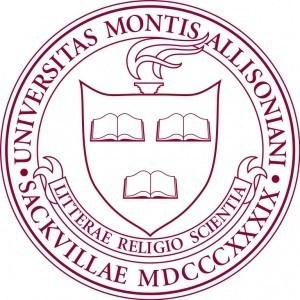Photos of university / #thompsonriversu
The Bachelor of Science in Computing Science and Mathematics at Thompson Rivers University offers students a comprehensive and rigorous education in the foundational principles and practical applications of computing and mathematical sciences. This interdisciplinary program is designed to equip students with the critical thinking, problem-solving, and analytical skills necessary to succeed in various technology-driven industries and research fields. The curriculum covers a wide range of topics, including programming languages, algorithms, data structures, software engineering, discrete mathematics, calculus, linear algebra, and statistics.Students will have the opportunity to engage with both theoretical concepts and hands-on projects, fostering a deep understanding of computational methods and mathematical reasoning. The program emphasizes experiential learning through lab work, collaborative projects, and internship placements, providing students with real-world experience and industry connections. Graduates of this program will be well-prepared for careers in software development, data analysis, artificial intelligence, cybersecurity, and academic research, among other fields. Furthermore, the program encourages innovation and adaptability, with electives and specializations that allow students to tailor their education according to their interests and career goals. Thompson Rivers University’s supportive academic community, experienced faculty, and modern facilities create an ideal environment for students to thrive academically and professionally. Whether pursuing further studies or entering the workforce, graduates will be equipped with the essential skills and knowledge to excel in the rapidly evolving landscape of computing and mathematics.
The Bachelor of Computing Science and Mathematics at Thompson Rivers University offers students a comprehensive and rigorous education that blends core principles of computer science and mathematics. This interdisciplinary program is designed to prepare graduates for a wide range of careers in technology, data analysis, research, and software development. Throughout the program, students will develop strong analytical and problem-solving skills, gaining expertise in algorithms, programming languages, data structures, computational theory, as well as advanced mathematical concepts including calculus, linear algebra, discrete mathematics, and statistics.
The curriculum includes foundational courses in programming, software engineering, database management, and systems analysis, providing students with practical skills for designing, developing, and managing complex software systems. In addition to technical training, students will engage with theoretical aspects of computing and mathematics to develop a deep understanding of computational problems, mathematical modeling, and quantitative reasoning. Electives and specialized courses enable students to explore areas such as artificial intelligence, machine learning, cryptography, data science, and numerical analysis, allowing for customization based on individual interests and career goals.
The program emphasizes experiential learning through hands-on projects, internships, and collaborative research opportunities. Students will have access to state-of-the-art labs and resources that foster innovation and experimentation. Instructors are experienced professionals and researchers committed to mentorship and student success. Graduates of this program are well-equipped to pursue advanced studies or to enter the workforce in roles such as software developer, data analyst, systems analyst, cybersecurity specialist, or mathematics researcher.
Thompson Rivers University prides itself on providing a flexible learning environment, with options for full-time or part-time study, and an emphasis on accessible education. The Bachelor of Computing Science and Mathematics aims to produce well-rounded, technically proficient graduates who can apply their knowledge to solve real-world problems and contribute to technological advancement across various industries.
Program Requirements: The Bachelor of Computing Science and Mathematics at Thompson Rivers University is designed to provide students with a comprehensive foundation in both computing and mathematical principles. To successfully complete the program, students must earn a minimum of 120 semester credits, which typically includes general education, core courses, major courses, and electives. Students are required to complete foundational courses such as Introduction to Computing, Programming Fundamentals, Discrete Mathematics, and Calculus. Advanced courses include Data Structures and Algorithms, Operating Systems, Software Engineering, and Mathematical Modeling. As part of the program, students must also undertake a capstone project that integrates knowledge from both disciplines, demonstrating their ability to apply theoretical concepts to practical problems. Electives may include topics like Artificial Intelligence, Machine Learning, Cryptography, or numerical analysis, depending on student interest and available courses. To graduate, students need to maintain a minimum cumulative GPA of 2.0. Additionally, students are encouraged to participate in internships or cooperative education programs to gain practical experience. Language proficiency requirements typically include a minimum score on standardized English language tests, if applicable. Students should also fulfill any residency requirements, such as completing at least 50% of courses at Thompson Rivers University. Throughout their studies, students are advised to consult with academic advisors regularly to ensure they meet all program requirements and to plan their course sequences effectively.
The financing options for the Bachelor of Computing Science and Mathematics at Thompson Rivers University are designed to support students throughout their academic journey. Students are encouraged to explore various sources of funding to make their education attainable and affordable. Firstly, government student aid programs, including Canadian federal and British Columbia provincial loans and grants, are available for eligible students. These financial aid packages often include need-based grants and low-interest loans that help cover tuition fees, living expenses, and other costs associated with studying.
In addition to government support, students can apply for merit-based scholarships and awards offered by Thompson Rivers University. These scholarships recognize academic excellence, leadership skills, and community involvement, providing financial assistance that does not need to be repaid. It is advisable for students to regularly check the university’s Scholarships and Awards webpage for updated opportunities.
Work-integrated learning programs and cooperative education options are also available, allowing students to gain practical experience while earning income. These programs often provide stipends or part-time employment opportunities related to the field of study, helping students offset educational costs.
International students should inquire about specific scholarship programs, bursaries, and international student aid options. Moreover, students are encouraged to seek external funding sources, such as private scholarships offered by organizations, industry awards, and community foundations.
Additionally, students might consider part-time employment opportunities on or near campus, which are often available and aligned with students’ schedules. Thompson Rivers University provides resources and career centers to assist students in finding suitable employment.
Financial planning services offered by the university can help students budget and manage their finances effectively throughout their studies. Some students may also consider student lines of credit or savings plans as supplemental funding options.
Ultimately, the university emphasizes the importance of early financial planning and encourages students to explore all available options to finance their education in Computing Science and Mathematics. Combining these resources can significantly lessen the financial burden and enable students to focus on their academic and career development.
The Bachelor of Computing Science and Mathematics at Thompson Rivers University offers students a comprehensive education in both theoretical and applied aspects of computing and mathematical sciences. The program is designed to equip students with foundational knowledge in programming, algorithms, data structures, and mathematical principles, as well as practical skills in software development, problem-solving, and analytical thinking. Throughout the degree, students have the opportunity to explore a variety of specialized courses such as data analysis, computer systems, discrete mathematics, calculus, linear algebra, and statistical methods. The curriculum emphasizes both individual and collaborative project work, preparing graduates for careers in software engineering, data science, cybersecurity, and research.
Thompson Rivers University supports active learning environments, including laboratories, workshops, and internships, to ensure students gain hands-on experience that aligns with industry standards. The program also encourages engagement in research projects and participation in technology communities, fostering innovation and critical thinking. Graduates of this degree are well-positioned to pursue further studies or enter the job market in various sectors such as information technology, finance, government agencies, and academia. The university provides extensive academic advising, career counseling, and networking opportunities to assist students in achieving their professional goals. The degree program aims to produce graduates who are adaptable, detail-oriented, and capable of tackling complex computational challenges in a global context.


